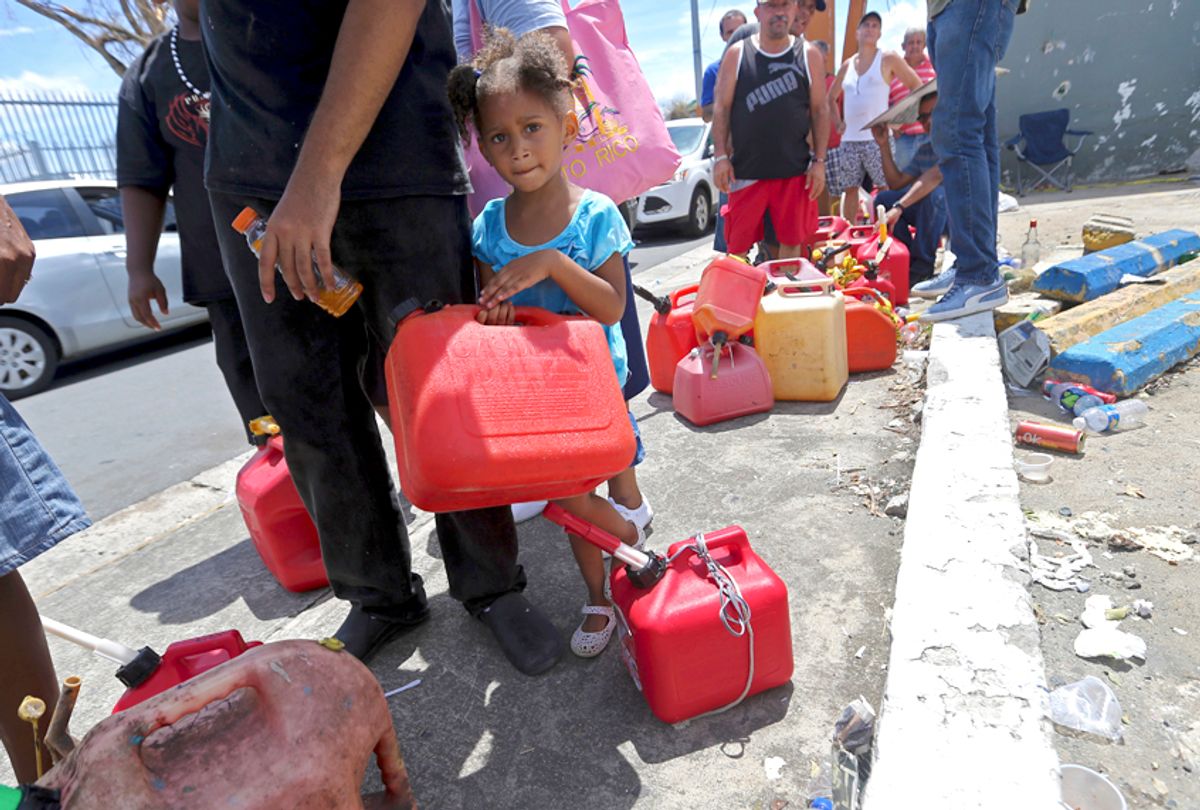 The number of suicides in Puerto Rico has increased by nearly one-third, or 29 percent, in 2017 over just a year prior. The figures were reported by the Commission for the Prevention of Suicide, a part of the Puerto Rico Department of Health. While the exact cause of the rise cannot be definitively pinned down, a Newsweek report from last month noted that many “health specialists and doctors said the spike in suicides can be linked to the aftermath of the storm that struck the island on September 20 and the destruction of basic resources like food, water, electricity and housing.”
The number of suicides in Puerto Rico has increased by nearly one-third, or 29 percent, in 2017 over just a year prior. The figures were reported by the Commission for the Prevention of Suicide, a part of the Puerto Rico Department of Health. While the exact cause of the rise cannot be definitively pinned down, a Newsweek report from last month noted that many “health specialists and doctors said the spike in suicides can be linked to the aftermath of the storm that struck the island on September 20 and the destruction of basic resources like food, water, electricity and housing.”
The numbers are particularly troubling since the suicide rate “significantly dropped in 2016 by 21 percent from 2015, then increased in 2017.”
Newsweek notes that there were 27 suicides in Puerto Rico in November, or nearly one per day. In December, that figure was 20. A total of 253 people committed suicide on the island last year, up from 196 in 2016.
“If someone is in a position where they do not have any electricity, water or a roof over their head, you’re going to either break and sometimes break to the point of committing suicide,” Alicia Schwartz, a New York City-based home care nurse who is volunteering in Puerto Rico, told the outlet. “You can only live so much without the simple necessities of having a roof over your head.”
Puerto Rican officials and aid organizations sharply criticized the Trump administration for its insufficient response following Hurricane Maria, the strongest storm the island has faced in 85 years. In the days after the disaster, as residents of the U.S. territory suffered without food, water or electricity, the president hardly acknowledged the destruction, choosing instead to tweet complaints about NFL players taking the knee. In response to San Juan Mayor Carmen Yulín Cruz’s public requests for aid, Trump issued a series of insults aimed at the island and its leadership from the confines of his luxury golf club.
While official tallies put the death toll at just 60, an analysis of “data from Puerto Rico’s vital statistics bureau” by the New York Times found that conditions linked to the hurricane's aftermath, such as pneumonia, infection and delayed medical treatment for chronic diseases like diabetes, had contributed to a death toll closer to 1,050. Into late January, nearly one-third of Puerto Ricans remained without power — the longest blackout in U.S. history. An explosion at a power plant on Sunday added to the mountain of difficulties islanders have faced for five months.
“A lot of people are still living with tarps over their roofs,” Kenira Thompson, who heads mental health services at the Ponce Health Sciences University, told Newsweek. “We normally have thousands of patients but have seen an increase in patients coming into the facility in rural areas post-Maria. Power is restored in most urban areas, but for rural areas, it's as if the storm hit last week.”
Puerto Rico’s sole suicide prevention hotline, Línea PAS, has been dealing with a spike in calls since the storm hit. The efforts of responders, many of them living without basic resources, were documented in a New York Times documentary short released this year. “Mental health issues will not stop, if you think about the next hurricane season will start again [soon]. We will have chaos when the first storm is announced on the news. Hopefully, it's not another storm like Maria,” Thompson said.

Shares